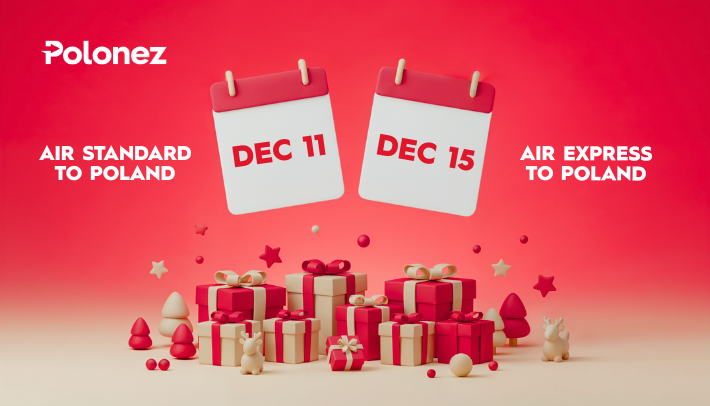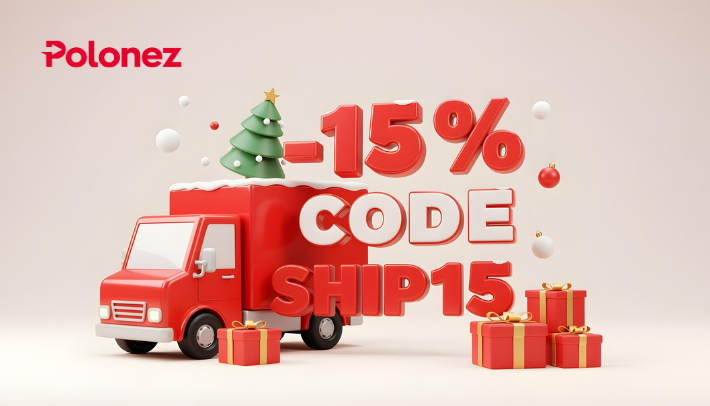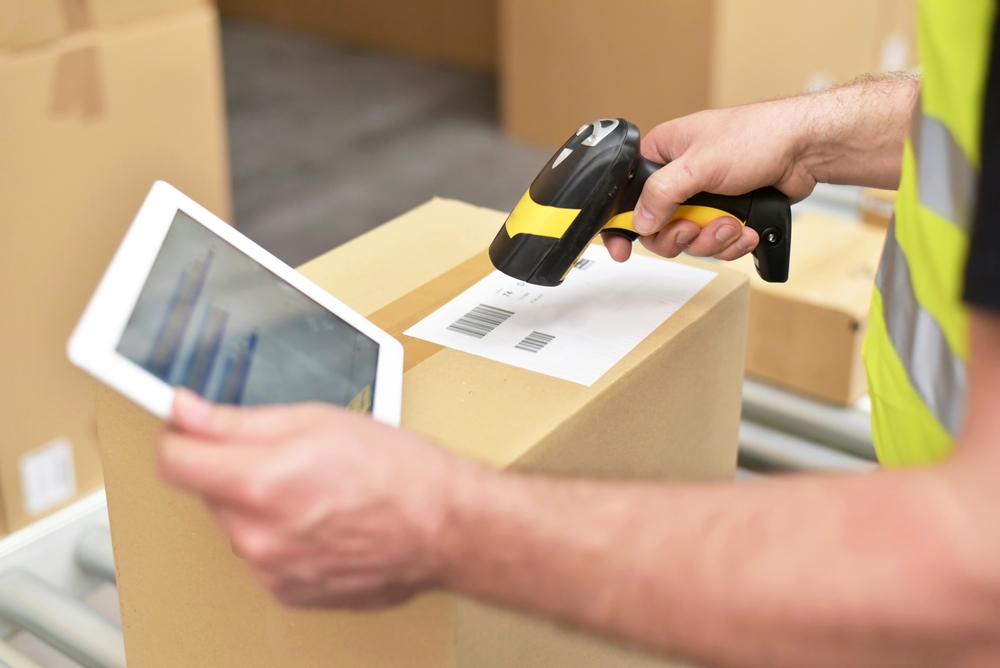Oct 6, 2025
Shopping and Shipping to Poland: A Highway of Goods

Cultural remittance is the force shaping American product flow to Poland, making shopping and shipping to Poland a process that's much more than just boxes crossing the ocean. Ideas and habits travel behind each package.
An imported cereal or a rare candy tells a story that significantly outshines a simple price tag. Because stores in the United States usually say no to cheap shipping, and the stacking fees quickly turn people away, families adapt by building their own system to get around these hurdles.
These shipments in the end fill an important need for things that are either tough to find, wildly overpriced, or simply blocked from crossing borders by certain companies in Poland. What ends up in these boxes often has little to do with money. Instead, an item like a box of cookies can feel like a tangible hug from home.
Sending that box is a declaration of ties, also known as “I remember where I come from.” This successfully keeps connections strong even when miles get in the way.
Each individual act of sending a package does more than help one household. Over time, all those shipments add up, and the resulting flow grows bigger, drastically increasing its overall impact. What started with tiny packages consequently becomes a steady link across continents, benefiting not just the individual families but also the wider community left behind in Poland.
This entire process effectively turns memories and longings into real connections and an economic boost nobody initially saw coming.
Purchasing Behavior When Shopping and Shipping to Poland
For the flow of goods to be successful, particularly concerning shopping and shipping to Poland, you have to understand the two main Polish-American groups involved. The “Old Diaspora” includes families settled in the United States for generations.
Eventually, these individuals are usually well-off, prefer occasional big buys, and often shop out of nostalgia for Poland. The “New Diaspora,” most of whom arrived after the 1990s, often as recent workers, frequently send money home, require regular shipments, and expect quick deliveries.
Businesses use this split to their advantage: while rare, bigger orders come from the first group, the second demands steady, small shipments. Trying to manage each order individually can get messy and weakens the collective trade impact for Poland.
However, by bundling these disparate purchases, companies create a steady pipeline of trade, transforming scattered and sporadic activity into an organized system that is far more powerful for both buyers and sellers. When these goods arrive in Poland, they do more than simply fill shelves. Each package subtly nudges local tastes, shapes what's popular, and brings a bit of the United States into Polish homes.
This continuous process changes habits on both sides, linking the two communities in small but lasting ways.
“Every year, the Polish diaspora in the United States sends about $900 million to Poland (World Bank data, prepared by the Migration Policy Institute), not to mention other countries,” according to Kuryer Polski. “These funds are comparable to those invested in Poland by foreign companies. The renaissance of the Polish diaspora in the USA is approaching with great strides.”
Goods with Identity: The American Lifestyle
Every act of shopping and shipping to Poland is driven by a wish to share a taste of the American lifestyle, resulting in international shipments that pack a punch, becoming far more than just a random assortment of items. Vitamins and supplements top the list every time because people trust the quality of U.S. products, especially for hard-to-find items like gluten-free or specialty nutrients.
Alongside these health products, beauty favorites are also highly sought after, with brands such as Urban Decay or Colourpop arriving right beside clothing from Ralph Lauren and trusty Gap wear.
On the tech side, phones, laptops, and camera gear get snatched up fast, largely because U.S. prices pull in shoppers who find local choices in Poland can't always compete. Boxes from Amazon, Victoria’s Secret, and DSW keep coming, demonstrating how family ties shape what’s inside — what someone buys and loves over here becomes a must-have for someone over there.
Each shipment becomes a mixed bag, reflecting both personal taste and daily needs.
“Poland is one of the world’s largest markets for dietary supplements, with 89% of Poles using them, driven by increasing health awareness and interest in active lifestyles as well as the power of marketing and innovation,” states New Zealand Ministry of Foreign Affairs and Trade. “With a population of approximately 38.1 million people in 2025, this widespread usage reflects a substantial consumer base. The market is rapidly expanding, with online sales and premium-quality products gaining traction alongside traditional pharmacy sales.”
It adds: “Emerging trends include demand for vegan, gluten-free, and natural supplements, was well as growing interest in superfoods, CBD-based products and personalised products.”
E-commerce Dynamics and Shopping and Shipping to Poland
The growing marketplace for shopping and shipping to Poland is highly impacted by the surge in Poland's online shopping market, which is predicted to grow from $24.7 billion in 2025 to $37.4 billion by 2030.
Driving this shift is the desire among consumers for fast and easy shopping experiences, which has led about 77 percent of all internet users to buy online. Since people pay close attention to prices, more than 70 percent of Polish shoppers use comparison sites and actively search for better deals from brands outside Poland, resulting in 39 percent already buying from shops based in other countries.
Despite this cross-border interest, most sales still happen through homegrown sites, with some shippers standing out as market leaders by claiming up to 20, 25, or even 30 percent of all online sales and servicing over 20 million Polish users each month. Buying habits further highlight a strong local flavor, as people clearly prefer fast bank transfers and Polish BLIK over relying solely on global online wallets like PayPal. Sellers from abroad need to either integrate these Polish payment tools directly or use services that simplify the payment process for local shoppers.
Trade data from 2024 paints an interesting picture: while heavy machinery dominates the product list, plenty of money also comes from high-value niche items such as electronics (making up $1.24 billion alone), precision gadgets, and unique tools, with high-end gadgets and charts pulling in hundreds of millions more. This strong mix of industrial orders from big buyers in cities like Chicago and special consumer goods hunted by shoppers in California proves the system works, showing that this profitable balance keeps the package consolidation business running strong.
|
Export Category |
Value (U.S. Dollars) |
Relevance to Diaspora/B2C/Specialty |
|
Electrical, electronic equipment |
$1.24 Billion |
High-value consumer electronics (laptops, phones) |
|
Machinery, nuclear reactors, boilers |
$1.21 Billion |
B2B/Industrial Equipment (large parts) |
|
Vehicles other than railway/tramway |
$1.02 Billion |
Auto parts, specialized vehicle components |
|
Optical, photo, technical, medical apparatus |
$536.6 Million |
Professional diagnostic or niche technical equipment |
|
Tools, implements, cutlery of base metal |
$39.6 Million |
Specialized US industrial/construction tools |
|
Pharmaceutical products |
$35.9 Million |
High-end/regulated dietary supplements |
The core finding of the research is that from 2011 to 2015, the Polish government radically changed its approach to the Polish diaspora, moving away from a traditional, care-based relationship toward one rooted in business-like principles known as New Public Management (NPM). This basic shift meant the state stopped focusing on its obligation — what Poland should do to support its people abroad — and instead focused on investment and return, asking primarily, “What can the diaspora do for Poland and the national interest?”
"Firstly, changes can be seen in the nature of the relationship between the sending state and the diaspora,” states Central and Eastern European Migration Review. “These involve a shift of emphasis from the obligations of the Polish state towards the diaspora to the obligations of the diaspora towards their homeland and the benefits that Poland stands to derive from their fulfilment. Consequently, diaspora policy tasks are being increasingly delegated to the diaspora itself.”
It adds: “Secondly, steps have been taken to restructure the diaspora policy implementation system and dismantle the collaboration model in order to create competition among the various relevant players and marketise the performance of public tasks. Thirdly, the above features of the ‘new’ diaspora policy were primarily an attempt to make the utilisation of public funds more effective.”
Regional Shopping and a Strategic Hub
Consolidation is highly effective in the process of shopping and shipping to Poland because it integrates highly diverse shopping habits from across the country. Though each package tells its own story, originating from various corners and shaped by local traditions and economic quirks, everything meets at a shared checkpoint before heading overseas.
This is quantitatively supported by huge categories like capital goods, machinery, and electrical equipment filling shipments leaving the United States for Poland.
On the ground, things get more personal: a Polish-American in Chicago might send niche tools or machine parts tailored for the local job scene, while West Coast wish lists often include high-dollar supplements unavailable in Poland due to strict regulations. The person running this operation skillfully manages both work-related gear and high-demand consumer goods, fitting all sorts of shopping wants into one tidy bundle.
This collective bundling allows everyone to save money on shipping. These amount to savings a single buyer could never grab alone.
A central sorting warehouse does more than just organize boxes. Its address sets the tone for the entire shipping network. In the New Jersey and New York area, history shapes every decision, dating back to the 1880s when Polish communities first settled here.
Generations later, their legacy powers today's business networks, fostering trust because people feel these warehouses are like neighbors. They aren’t faceless corporations. Shipping efficiency gets a natural boost from the area’s geography, with the Port of New York and New Jersey acting as the beating heart of trade, ensuring ships, trains, planes, and trucks move smoothly through this gateway.
Additionally, Foreign Trade Zone 49 adds another layer of flexibility, allowing operators to hold onto goods longer or pay fewer fees, savings that flow straight to shoppers. This strategy of grouping packages in one spot keeps costs down, avoids slowdowns, and is a practical, proven, and locally rooted approach that fundamentally outperforms sending every single box alone.
Savings, Consolidation, and Shopping and Shipping to Poland
The service facilitating shopping and shipping to Poland operates simply. You shop from U.S. stores, and your orders are directed to a New Jersey warehouse where staff gather packages sent by the consolidated shipping ecosystem.
They hold your items for about 45 days at no extra cost, and when you’re ready, they bundle all your packages into one consolidated box, which drastically saves you money on shipping to Poland. Two powerful logistical principles achieve the massive savings claim (up to 80 percent) compared to direct international rates:
- Dimensional Weight Mitigation: Standard carriers calculate cost based on the greater of actual weight or volumetric (dimensional) weight, severely penalizing large, light packages. Consolidation involves professional repacking to efficiently reduce volumetric size, thereby mitigating these charges and translating into huge savings for long-distance transit.
- Fixed Cost Spreading: Consolidators expertly spread the high fixed cost associated with international shipping (including customs documentation and carrier minimum charges) across the multiple items contained within the single consignment, drastically lowering the effective delivery cost per item.
Forwarders act as a main checkpoint for quality control and risk reduction, often packing fragile items with extra bubble wrap. Before pricey cultural items leave the country, some goods, such as certain electronics, must go through Hazmat checks, and staff can perform additional services like testing equipment or snapping detailed photos, adding another layer of verification.
Europe's Gatekeepers: VAT, IOSS, and Delivery Terms
Once the combined shipment reaches Europe, the package forwarder steps in to shield buyers from the maze of taxes in the European Union.
In 2021, rules changed, and the €22 VAT (Value Added Tax) exemption vanished. Now, VAT is applied to everything coming into Poland from the US, making shopping pricier for buyers.
The IOSS system helps with this by ensuring VAT shows up right at checkout, allowing buyers to know the real price before clicking pay and preventing nasty fees on the doorstep in Poland. Conversely, without IOSS, couriers chase down payments later, which always causes headaches since nobody likes waiting or hunting down extra cash.
Clear delivery terms matter a lot; for instance, DDP (Delivered Duty Paid) means everything is settled early, while DDU (Delivered Duty Unpaid) makes buyers deal with taxes at their door. This confusion slows down the process. For operators handling huge shipments, using something called Customs Procedure 42 allows VAT to vanish if the goods move to another European Union country.
This keeps more cash available for the seller.
Shopping and Shipping to Poland: Competition & Trust Practices
Shopping and shipping to Poland has two main faces: long-time specialists who lean on trust built over years, often using local Polish delis for package drop-offs, which makes the whole process feel familiar and well-known.
Meanwhile, new companies with a tech focus take a different route, offering free photos of packages and allowing customers to track everything online. This service is not just a shiny extra. It’s a huge feature that helps put people at ease, especially if they have had bad shipping experiences in the past.
Problems are also evident with older companies, as complaints about late deliveries and poor replies frequently pop up online. These issues appear to be more than rare slip-ups, suggesting that they often struggle when their service demand scales up.
For anyone shipping internationally, this dynamic matters, as price is no longer the sole factor. People now prioritize fast updates and clear answers. Trust built over time quickly starts to fade if packages go missing and no one picks up the phone, meaning reliable information and quick fixes are what ultimately tip the scales today.
To maximize savings and successfully send a cultural remittance:
- Do Financial Due Diligence: The final cost for an identical shipment can show massive variance (from $130 to $800). Rates must be compared meticulously before booking the service to ensure the cultural exchange remains affordable.
- Optimize Package Preparation: The forwarder saves costs by aggressively repacking to reduce volumetric weight. Rigid boxes should be sent to the U.S. warehouse, and the repacking process must be acknowledged, as the goal is to reduce the ultimate shipping cost.
- Mandatory Compliance: All contents must be correctly declared, especially items containing batteries (laptops, phones) or regulated chemicals/supplements. Improper declaration is the most common cause of major delays or shipment rejection, seriously jeopardizing the entire cultural exchange.
Polonez America
Polonez America specializes in international shipments from the United States to 43 European countries and specifically shopping and shipping to Poland. We offer parcel shipment via ocean or air, vehicle shipment, commercial LCL (Less than Container Load) and FCL (Full Container Load) shipping.
Our comprehensive range of services means customers can initiate package or commercial shipments from any of Polonez's authorized shipping outlets within the United States, which are then transported to our headquarters for sorting. Customers can send packages from authorized shipping outlets in the United States or by sending them via UPS, FedEx, or U.S. Postal Service to Polonez America's headquarters in Port Reading, NJ.
Polonez America is your expert in the resettlement process, collaborating with European partners for parcel services, customs, and delivery within Poland and other countries. We earn client trust through integrity and professionalism by delivering the highest quality service at the most competitive price.
Recommended to you

News
Dec 2, 2025
Don’t Miss Christmas Delivery!
CHRISTMAS IS JUST AROUND THE CORNER. There’s still time to send your holiday parcels to Poland — but the shipping deadlines are approaching quickly!

News
Dec 1, 2025
15% OFF Online Shipments
December Holiday Promo

News
Nov 24, 2025
How the Middle Warehouse Ensures Quick Delivery to Poland
U.S. online shops are reaching more buyers in Europe every year thanks to quick delivery to Poland and other countries.




